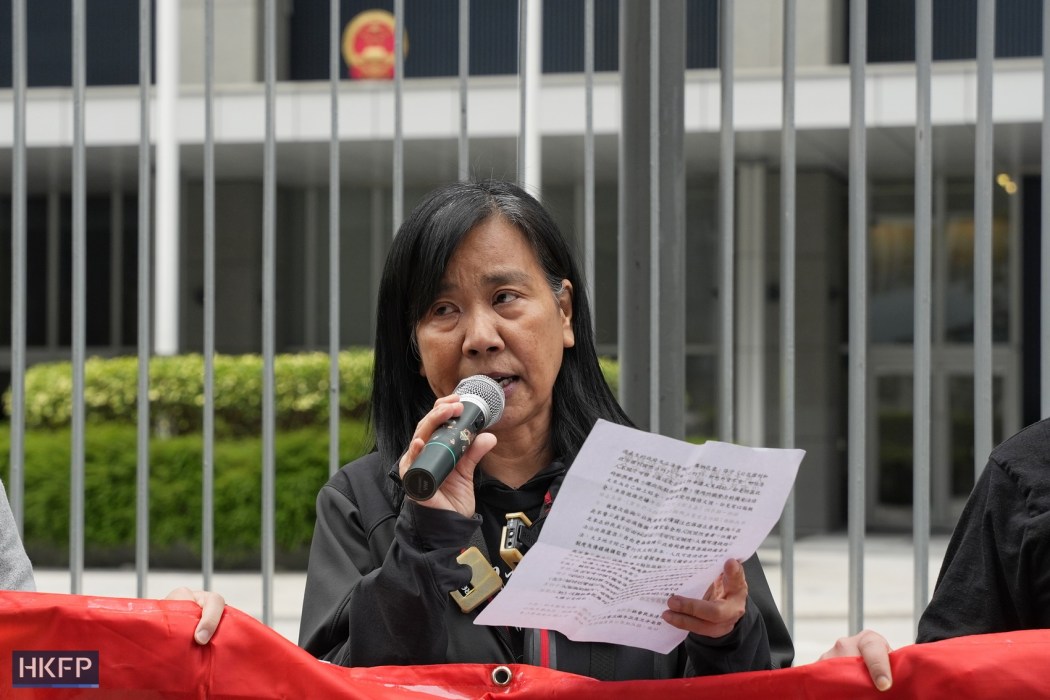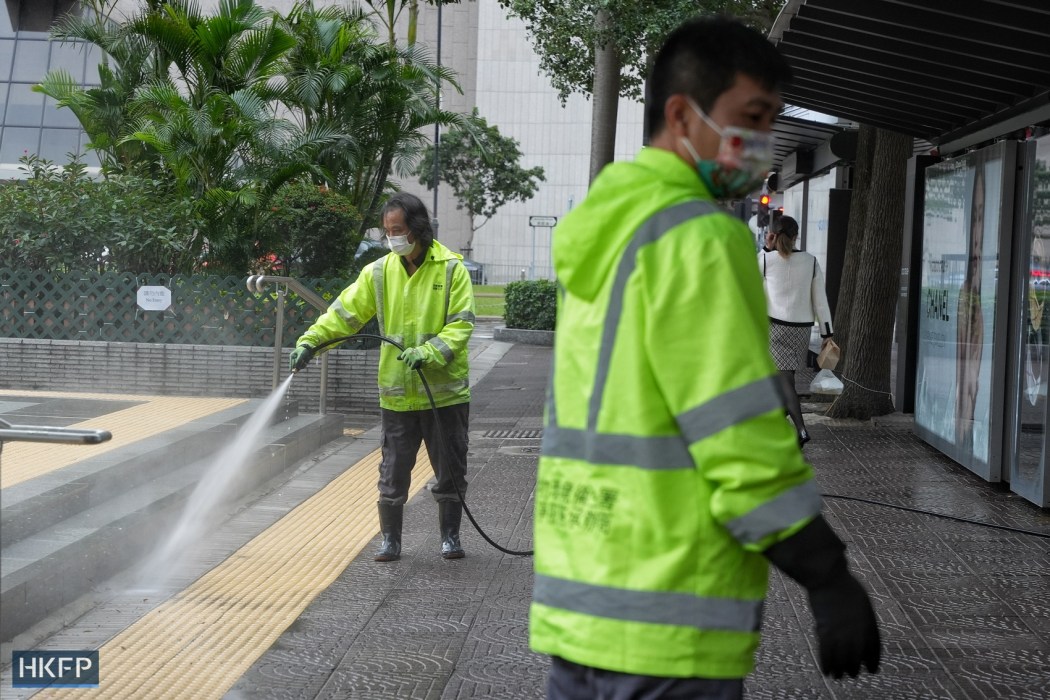It is “extremely regretful” that Hong Kong has not seen any labour rights marches since 2019, the chairperson of one of the last remaining opposition parties has said as the city marked its fifth Labour Day without protests.

Chan Po-ying, leader of the League of Social Democrats (LSD), told HKFP on Thursday that the government tended to side with employers on labour issues and was slow to respond to workers’ demands.
She added that the Hong Kong Federation of Trade Unions (FTU), a pro-establishment group and the city’s largest union, was not doing enough on behalf of the city’s low-wage earners. The union, which along with the LSD and other unions used to organise marches on Labour Day, said last month that it could – instead – express workers’ demands through “celebrations.” Its members did not want to hold a march, the union said.
“Hanging out, drinking and chatting [will not bring change]… we think that collective action is needed to fight for basic rights,” Chan said in Cantonese.
“In the past, labour unions like the FTU and the Hong Kong Confederation of Trade Unions [HKCTU] organised marches on Labour Day,” she said, the latter group referring to the pro-democracy union that disbanded in the wake of the security law.
“It’s been five years that there have been no marches, while the [livelihoods] of workers has gotten worse,” Chan said. “It is extremely regretful.”

The activist said that, while the FTU earlier demanded that the government should raise the minimum wage from HK$40 to HK$55, it had not put sufficient pressure on the authorities.
She added that there were FTU members among the government’s cabinet and in the Legislative Council. “Why don’t they do more? If the government does not listen to them, they should quit in protest,” Chan said.
‘Workers need to live’
Traditionally, Labour Day in Hong Kong was an occasion for activists to hold colourful protests and march for labour rights. But the last time there were such scenes was in 2019, before Beijing imposed a national security law. Since then, the city has not seen any large-scale, organised protests.
The LSD held a short petition outside government headquarters on Wednesday. Chanting “labour deserves respect, workers need to live,” the activists said the current minimum wage of HK$40 was not enough to support the city’s low-wage earners.
They also called on the government to enact laws on working hours and set up unemployment assistance schemes.
Ahead of Labour Day, authorities announced that the city’s minimum wage would be reviewed yearly instead of every two years, a change that came after more than a decade of lobbying by labour groups for more frequent evaluations to keep pace with inflation. The government is also expected to raise the minimum wage to HK$41.80.

Secretary for Labour and Welfare Chris Sun said the changes “strike an appropriate balance between the objectives of forestalling excessively low wages and minimising the loss of low-paid jobs, while giving due regard to sustaining Hong Kong’s economic growth and competitiveness.”
The new mechanism, however, will only come into effect in 2026.
Chan said that, although it was “good” that the government would finally be reviewing the minimum wage annually, the fact that it would only begin in two years time showed that “employers had a louder voice than workers.”
“The current minimum wage of HK$40 cannot even buy lunch,” she said.
She added that the government should consider NGO Oxfam’s research that the living wage standard was HK$61.50. Oxfam says that would be the hourly salary needed for one to meet basic needs in the city.
The minimum wage was most recently raised by HK$2.50 last year after remaining frozen at HK$37.50 since 2019, with Chief Executive John Lee saying he wanted to thank workers for their “important contributions to the country and the society’s prosperous development.”
Support HKFP | Policies & Ethics | Error/typo? | Contact Us | Newsletter | Transparency & Annual Report | Apps
Help safeguard press freedom & keep HKFP free for all readers by supporting our team

LATEST FROM HKFP
HKFP has an impartial stance, transparent funding, and balanced coverage guided by an Ethics Code and Corrections Policy.
Support press freedom & help us surpass 1,000 monthly Patrons: 100% independent, governed by an ethics code & not-for-profit.










